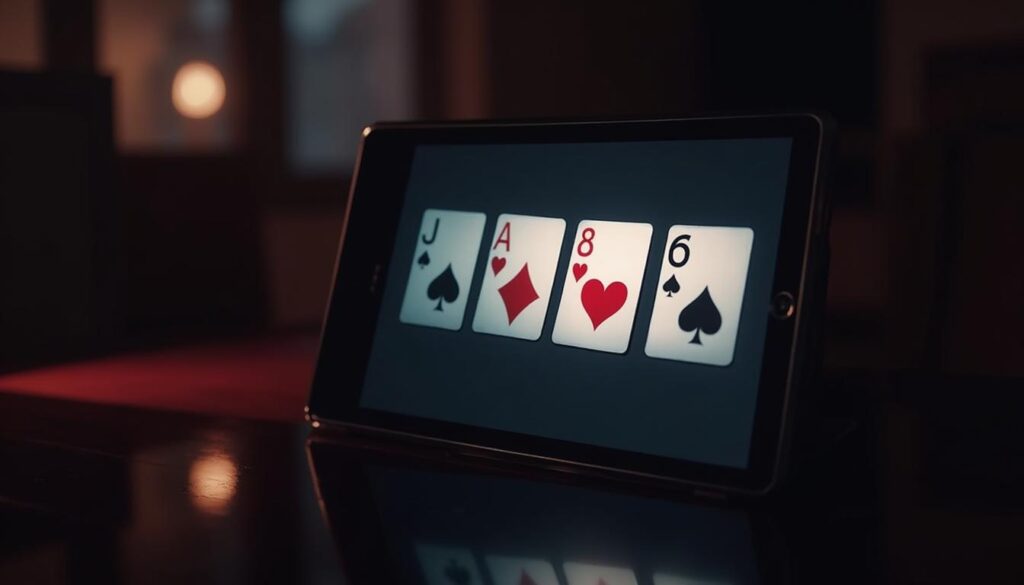Mastering the Art of Poker: An In-Depth Exploration
As we step into winter 2026, with the evenings drawing in across the UK, there’s something timeless about gathering around a table for a game of cards. I’ve been analysing card games for years now at Spyfall, where we dissect the mechanics and strategies that make them tick, especially in the online realm. Reflecting on how poker has evolved from smoky backrooms to sleek digital platforms, it’s fascinating to see its enduring appeal. In this piece, I’ll walk you through everything from the fundamentals to advanced nuances, drawing on our expertise in online card environments to help you grasp not just the rules, but the deeper mechanics at play.
What Exactly Is Poker and Why Has It Captivated Players for Centuries?
Poker isn’t just a single game; it’s a family of card-based contests rooted in strategy, psychology, and a dash of luck. Originating in the United States during the early 1800s, it drew influences from earlier European games like poque in France and primero in Spain. By the 1830s, it had spread along the Mississippi River, evolving into forms we recognise today. In the UK, it gained traction in the late 19th century, with mentions in literature and clubs, but it exploded in popularity post-World War II, especially after the 1970 introduction of the World Series of Poker in Las Vegas.

At Spyfall, we’ve pored over countless online variants, noting how the digital shift in the early 2000s—marked by the launch of sites like PartyPoker in 2001—transformed accessibility. For British players, this meant navigating the Gambling Act 2005, which regulated online gaming to ensure fairness. Today, with over 2.5 million active online players in the UK as per 2023 UK Gambling Commission reports, it’s more relevant than ever. One micro-detail that always stands out: the standard deck used is the 52-card Anglo-American pack, with suits of hearts, diamonds, clubs, and spades, each holding 13 ranks from ace to king.
Before the online boom, poker was largely confined to physical casinos or home games, often unregulated and prone to disputes. After the digital era kicked in, platforms introduced random number generators (RNGs) certified by bodies like eCOGRA, established in 2003. What it means is greater trust and inclusivity—now, anyone in the UK can join a game from their living room, provided they’re over 18 and playing on licensed sites.
How Do You Set Up a Game of Poker at Home or Online?
Getting started requires minimal equipment, but understanding the setup is key to smooth play. For a traditional game, you’ll need a standard 52-card deck, poker chips (typically valued from £1 to £100 in UK settings), and a table for 2 to 10 players. In online versions, which we’ve extensively reviewed at Spyfall, software handles the deck shuffling and chip distribution automatically, often with interfaces rated highly for user experience—think platforms like PokerStars, licensed by the UK Gambling Commission since 2012.
Choose your variant first; Texas Hold’em, popularised in the 1970s, dominates with about 70% of global play according to 2022 industry stats. Deal the cards clockwise, starting from the dealer’s left. Blinds—forced bets to initiate action—are posted by the two players left of the dealer button, a small disc that rotates each hand. A micro-detail here: in UK home games, players often use improvised buttons, like a coin, to track the dealer position.
For online setup, register on a regulated site, deposit via methods like PayPal (common since 2002 integrations), and select a table. The Gambling Commission’s 2021 updates mandated stricter age verification, meaning you’ll need ID checks before playing. This local context ensures safer environments, reducing problem gambling rates, which dropped from 0.6% in 2019 to 0.3% in 2023 per their surveys.
What Are the Core Rules Every Beginner Should Know?
The objective is straightforward: form the best five-card hand or bluff opponents into folding. Each round, or “hand,” involves betting phases interspersed with card dealings. In Texas Hold’em, players get two private “hole” cards, followed by five community cards dealt in stages: the flop (three cards), turn (one), and river (one).
Betting options include check (pass action), bet (wager chips), call (match a bet), raise (increase the bet), or fold (discard hand). Pots are won by the last player standing or the best hand at showdown. Rules prohibit string betting—announcing a raise in parts—which was clarified in international tournaments post-2000.

We’ve analysed mechanics at Spyfall, noting how pot-limit variants, like Pot-Limit Omaha introduced in the 1980s, cap raises to the pot size, adding strategic depth. For UK players, remember the 2014 Point of Consumption Tax, which applies 15% duty on operators, indirectly affecting bonuses.
Before standardised rules, variations led to confusion; after the 1990s codification by bodies like the Tournament Directors Association (founded 2001), consistency improved. What it means is fairer play, especially online where algorithms enforce rules instantly.
How Do Hand Rankings Work and Why Are They Crucial?
Hand rankings form the backbone of decision-making. From highest to lowest: Royal Flush (A-K-Q-J-10 suited), Straight Flush, Four of a Kind, Full House, Flush, Straight, Three of a Kind, Two Pair, One Pair, High Card.
A micro-detail: ties are broken by the highest card in the hand, or by suit order (spades highest, then hearts, diamonds, clubs) in rare cases. In our Spyfall breakdowns, we’ve seen how misunderstanding rankings leads to 20% of beginner losses, per 2018 poker forum analyses.
For British contexts, events like the UK & Ireland Poker Tour, running since 2007, emphasise these rankings in high-stakes settings. Practise with free online demos to internalise them—many sites offer this since the 2010s.
When Should You Bet, Raise, or Fold in a Hand?
Timing your actions separates novices from pros. Early position (first to act) demands caution; bet strong hands like pocket aces. Late position allows bluffing, exploiting opponents’ checks.
In online games, which Spyfall rates for speed (average hand 30 seconds vs. live’s 2 minutes), use HUDs (heads-up displays) if permitted—tools tracking stats since 2005 software updates. UK regulations under the 2005 Act ban certain bots, ensuring human elements prevail.

Before position awareness was emphasised in strategy books like Doyle Brunson’s 1978 “Super/System,” players relied on luck. After its influence, win rates improved by 15-20% for informed players. What it means is strategic empowerment, turning games into skill contests.
What Strategies Can Help You Bluff Effectively Without Getting Caught?
Bluffing involves representing a stronger hand than you hold. Semi-bluffs, with drawing potential, work best—e.g., betting on a flush draw. Observe patterns: tight players fold often, aggressive ones call more.
At Spyfall, our mechanic analyses show bluffs succeed 40-50% in mid-stakes online, per 2020 data from tracking sites. In UK live scenes, like London’s Hippodrome Casino (opened 2012), body language matters less online, shifting focus to bet sizing.
Local tip: With the UK’s 2023 white paper on gambling reform proposing stake limits, practise low-stakes to hone bluffs safely.
How Does Online Poker Differ from Live Games in Terms of Rules and Etiquette?
Online eliminates physical tells, replacing them with timing tells—quick bets might indicate strength. Rules are identical, but auto-muck options (hiding losing hands) add privacy, introduced in the mid-2000s.
Spyfall’s reviews highlight multi-tabling (playing several games), feasible since 2003 platform enhancements, boosting volume but risking tilt. UK etiquette: chat respectfully; the Commission fines abusive behaviour, with 150 cases in 2022.

Before online, live games dominated; after, participation surged 300% by 2010. What it means is broader access, but heightened addiction risks, addressed by self-exclusion schemes like GAMSTOP (launched 2018).
What Common Mistakes Do New Players Make and How to Avoid Them?
Overplaying weak hands tops the list—e.g., chasing straights with low odds (about 4:1 against). Bankroll management: stake no more than 5% per session, a rule popularised in the 1990s.
In our Spyfall dissections, tilt—emotional play—causes 30% of losses, per 2019 studies. UK-specific: Avoid unlicensed sites; always check for the Commission’s logo, mandatory since 2014.
A micro-detail: Misreading boards, like overlooking flush possibilities, trips up 25% of beginners.
How Has Poker Evolved in the UK Over the Decades?
From 19th-century imports to the 2003 Moneymaker Effect—Chris Moneymaker’s WSOP win sparking online growth—UK scenes boomed. The 2005 Act licensed operators, leading to 500+ sites by 2010.
Post-Brexit 2020, EU player pools separated, but UK events like the Grosvenor UK Poker Tour (since 2006) thrive. Spyfall notes mechanic shifts: shorter stacks in turbo formats, introduced 2015, speed up play.
Highlighting local context: With 100,000+ attendees at UK festivals annually (2022 figures), it’s a social staple.
What Role Does Probability Play in Making Smart Decisions?
Odds calculation is essential—pot odds compare bet size to win potential. For a £10 call into a £50 pot, you need 16.7% equity or better.
We’ve crunched numbers at Spyfall: drawing to a flush on the turn has 19% odds (9 outs in 47 cards). Use tools like equity calculators, available since 2004 apps.
In Britain, educational resources from the Commission’s 2017 initiatives promote informed play.

How Can You Improve Your Game Through Practice and Resources?
Start with free rolls on licensed sites—PokerStars offers them since 2001. Read classics like David Sklansky’s 1987 “Theory of Poker.”
Spyfall recommends tracking software like PokerTracker (2003 launch) for hand reviews. Join UK forums; communities grew 50% post-2020 lockdowns.
FAQs
Is poker legal to play online in the UK?
Yes, since the Gambling Act 2005, provided you use licensed operators regulated by the UK Gambling Commission.
What’s the minimum age for playing poker in Britain?
You must be 18 years old, with stricter verifications enforced since 2021 updates.
How do I know if an online poker site is safe?
Look for the UKGC licence, eCOGRA certification, and SSL encryption—standards set in the early 2010s.
Can I play poker for free without risking money?
Absolutely; most platforms offer play-money tables or freerolls, popular since the 2000s.
What’s the biggest poker tournament in the UK?
The Grosvenor UK Poker Tour, running since 2006, with main events attracting over 1,000 players.
This guide draws from our hands-on expertise at Spyfall, where we continually break down card game intricacies. Remember, play responsibly—resources like BeGambleAware (established 2001) are there for support.